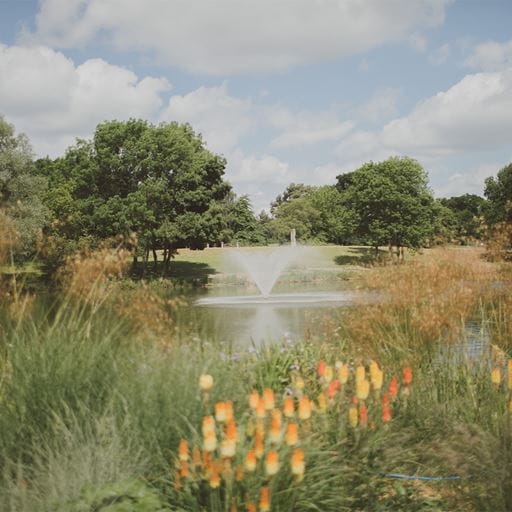Tackling the science and impact of environmental change
The impact of climate change cannot be underestimated. Extreme weather scenarios are increasing globally, leading to loss of life and costly damage to ecological habitats, homes, and livelihoods. The problem requires solutions across all levels of society, from national government policy to local neighbourhood schemes.
Our undergraduate degree programmes in Environment provide the opportunity for you to tackle this challenge head on and from different perspectives. Whether that be studying the science behind global sustainability, climate change, ecology and environmental biology, habitat and ecosystem loss. Or from a philosophical and historical approach examining how the environmental change is impacting human populations, migration, international relations and human rights, and risks this brings to world peace caused by resource scarcity.
Our courses are split between the scientific approach of Global Sustainability and Ecology and Environmental Biology taught by the School of Life Sciences and the more theoretical analysis of Global Studies with Sustainability by the School of Philosophical, Historical and Interdisciplinary Studies.
- We’re ranked 54th (14th in UK) for promoting the United Nations Sustainable Development Goal for climate action (Times Higher Education Impact Rankings 2024).
- We're ranked 1st in the UK for biology (The Mail University Guide 2026) and 4th for student positivity in ecology and environmental biology (National Student Survey 2025, English Broad Discipline Universities).
- You'll study at a University committed to making a difference and sustainability and responding to the climate crisis is at the heart of what we believe in.
Career prospects
Our Schools of Life Sciences and Philosophical, Historical and Interdisciplinary Studies provide a range of advice and guidance on how your chosen course can lead to a successful career. Some of our alumni now work for some of the world's biggest companies, others created their own companies and are helping solve some of the world's great problems.
Pursue your passion for the environment
Our changing environment is the primary threat to our world’s survival. The climate crisis has motivated mass protests across the world.
Scientists and grassroots activists now influence government policy, while the creative community seeks ways to respond to the movement and broadcast its message ever further. Our unique and thought-provoking Masters courses will thrust you into a world of environmental study in areas you may not have considered before.
- The damage to our environment impacts every area of life. You will have the opportunity to take modules from across all three faculties to take a multi-disciplinary approach towards finding solutions.
- Our courses take you outside the lecture theatre and into the wild landscapes of Essex and East Anglia.
- Colchester Campus is situated on green flag award-winning parkland.
![Photo of MA Wild Writing graduate, Barbara Claridge]() "I really enjoyed the practical side of the course – going outside to research and write. It was investigative and encouraged a creative approach. I loved it! I was also excited to take modules across departments – I studied Conservation Management and Pollution, and also took a course on French. My husband and I spend our lives in Brittany, France, where I am a full-time gardener surrounded by countryside and dairy farms, as well as Southampton, UK, where I do voluntary work and participate in the creative group Waterside Writers."
"I really enjoyed the practical side of the course – going outside to research and write. It was investigative and encouraged a creative approach. I loved it! I was also excited to take modules across departments – I studied Conservation Management and Pollution, and also took a course on French. My husband and I spend our lives in Brittany, France, where I am a full-time gardener surrounded by countryside and dairy farms, as well as Southampton, UK, where I do voluntary work and participate in the creative group Waterside Writers."

Explore the departments and schools tackling the environment
Your environmental research journey
We give you an opportunity to create and develop new ideas through inter-disciplinary projects that can make real progress in our ever changing environment. You'll research alongside our experts who offer supervision across areas such as environmental microbiology, marine biology, ecology, photosynthesis, plant productivity, sustainable agriculture, environmental resource management, pollution, aerosol science and the impact of nanoparticles on the environment.
As a research student in our School of Life Sciences, you'll have access to a wide range of cutting-edge facilities, such as:
- high-throughput molecular ecology facilities aquaria
- mesocosms and other facilities for ecology and behaviour studies analytical facilities for measuring trace gases, hydrocarbons and lipids
- a greenhouse with GM containment and controlled environment growth facilities
- a Plant Phenomics Facility for high throughput screening of model plant species extensive microbial cultivation facilities
- advanced bioimaging suite to visualise and analyse images of biological processes in real time
- a state-of-the-art tropical coral-reef research facility
- extensive microbial cultivation facilities
Start your application with us
Explore our research programmes in environmental biology and environmental sciences and by theme or your area of interest and find a supervisor that can support your through your studies. More information can be found about research degrees on our school pages. Our courses below will help guide you through the various research degree programmes we offer.

Our research in environmental science and biology

Sign up to emails and discover what it's like to live and study at Essex.




)




